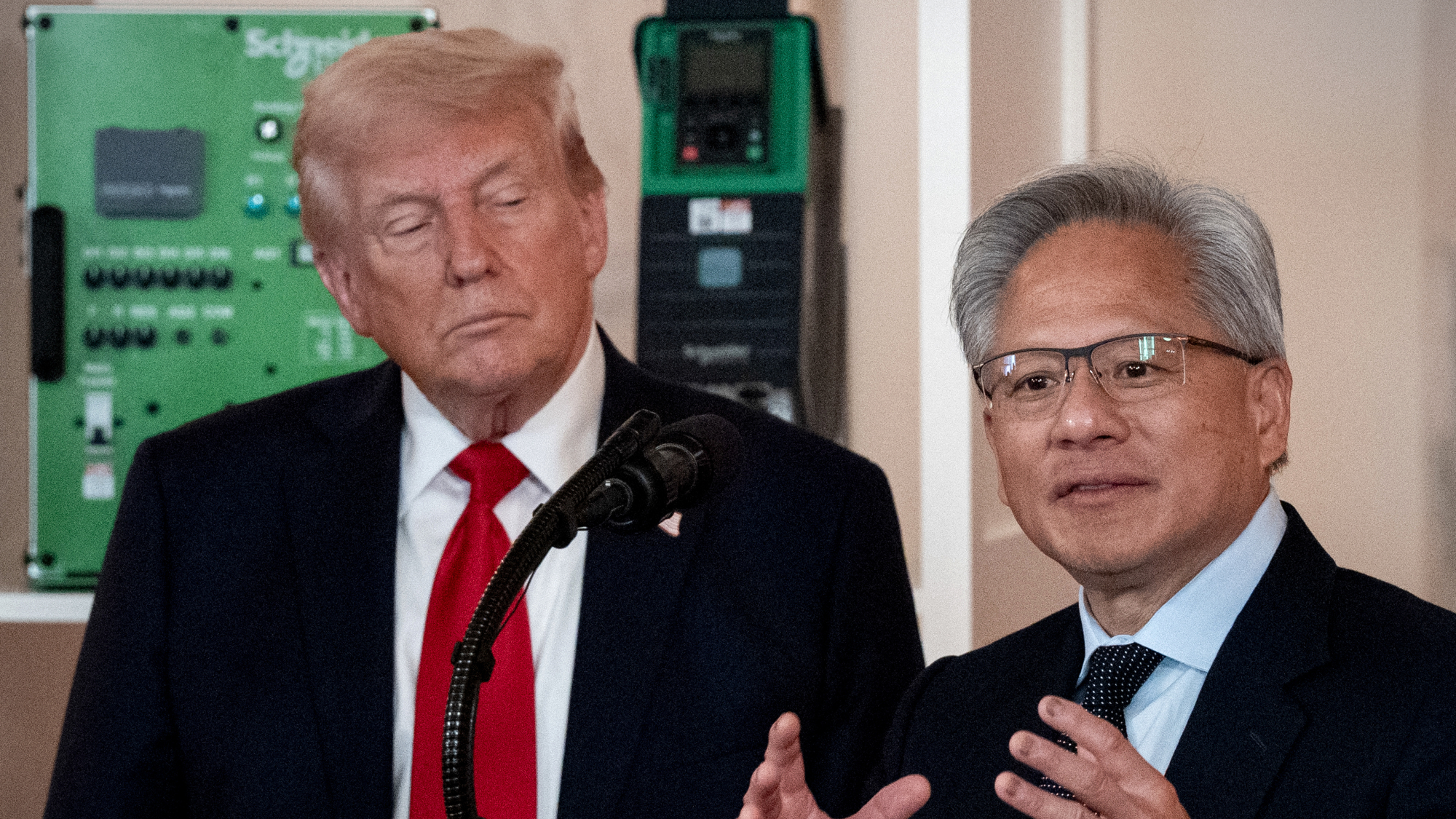US to take 15% cut of AI chip sales to China
Nvidia and AMD will pay the Trump administration 15% of their revenue from selling artificial intelligence chips to China


A free daily email with the biggest news stories of the day – and the best features from TheWeek.com
You are now subscribed
Your newsletter sign-up was successful
What happened
Nvidia and AMD have agreed to pay the Trump administration 15% of their revenue from selling artificial intelligence chips to China, the Financial Times and other news organizations reported Sunday.
President Donald Trump in April had banned Nvidia and AMD from selling China their H20 and MI308 AI chips, respectively, and the chipmakers "agreed to the financial arrangement as a condition for obtaining export licenses" granted last week, the Times said.
Who said what
The "quid pro quo arrangement is unprecedented," the Times said, and followed a meeting last Wednesday between Trump and Nvidia CEO Jensen Huang. The Trump administration announced last month that it would reverse its ban on H20 sales to China, but it did not issue the export licenses until Friday.
"We follow rules the U.S. government sets for our participation in worldwide markets," Nvidia said in a statement Sunday. The deal is attracting criticism both because companies don't usually "essentially pay for export licenses" in the U.S. and over concerns the chip "will boost China’s AI ecosystem and military," The Wall Street Journal said. "It's wild," Geoff Gertz at the Center for New American Security told Reuters. "Either selling H20 chips to China is a national security risk, in which case we shouldn't be doing it to begin with, or it's not a national security risk, in which case, why are we putting this extra penalty on the sale?"
The Week
Escape your echo chamber. Get the facts behind the news, plus analysis from multiple perspectives.

Sign up for The Week's Free Newsletters
From our morning news briefing to a weekly Good News Newsletter, get the best of The Week delivered directly to your inbox.
From our morning news briefing to a weekly Good News Newsletter, get the best of The Week delivered directly to your inbox.
What next?
The "highly unusual financial agreement" could "funnel more than $2 billion to the U.S. government," The New York Times said. The administration has "not yet determined how to use the money," the Financial Times said, citing sources.
A free daily email with the biggest news stories of the day – and the best features from TheWeek.com
Peter has worked as a news and culture writer and editor at The Week since the site's launch in 2008. He covers politics, world affairs, religion and cultural currents. His journalism career began as a copy editor at a financial newswire and has included editorial positions at The New York Times Magazine, Facts on File, and Oregon State University.
